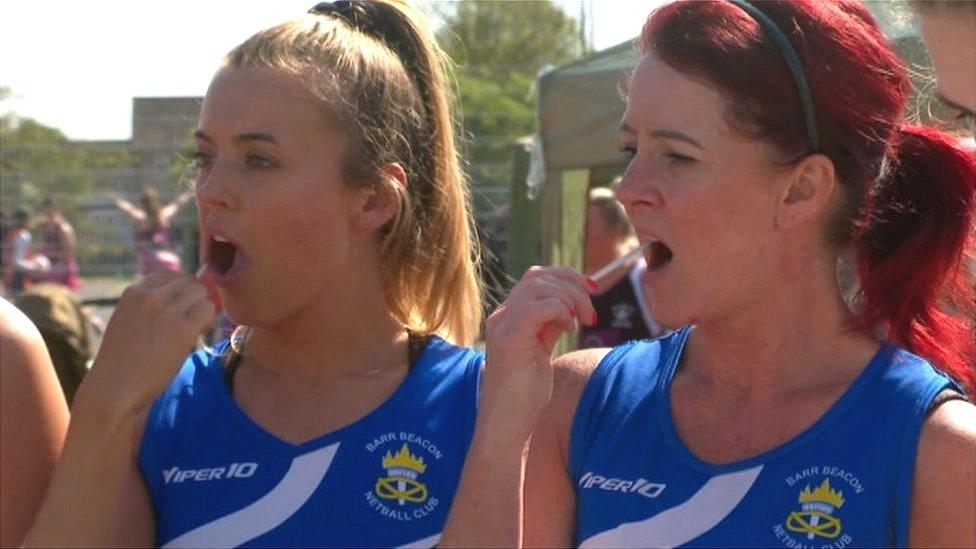Norfolk leukaemia patient in diverse heritage donor call
- Published
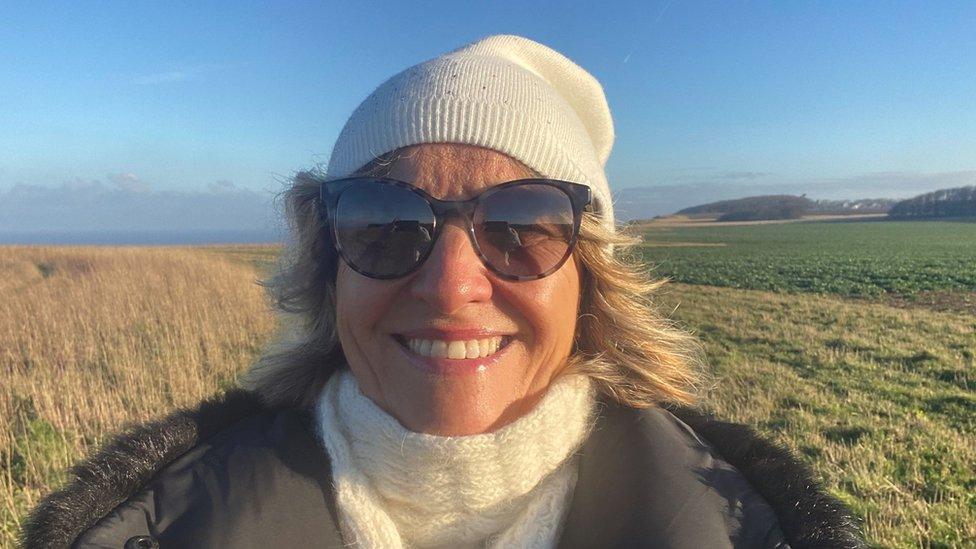
Jackie Higham has rare acute lymphoblastic leukaemia; a blood disorder which tends to affect children rather than adults, according to Anthony Nolan
A woman of Lebanese descent in desperate need of a life-saving stem cell transplant has urged others of mixed heritage to become donors.
Jackie Higham, 61, from Bramerton, Norfolk, has acute lymphoblastic leukaemia, external, a rare type of blood cancer.
Her mixed heritage has made finding a donor far harder.
According to stem cell donor charity Anthony Nolan, external, there is an acute lack of registered donors from diverse and mixed heritage backgrounds.
The organisation said only 72% of transplant patients received the best possible match from an unrelated stem cell donor; this dropped to about 37% of patients from minority ethnic backgrounds.
The charity said there is a significant global need for more mixed-race donors on stem cell registers, particularly those with Middle Eastern heritage.
Early on in her search for a donor Mrs Higham, whose parents were English and Lebanese, was told none were available in the UK.
A transplant of blood stem cells from a healthy person would replace and repair her damaged cells, hopefully curing the disease.
Blood stem cells are new, primitive blood cells made in the bone marrow, found in the centre of our large bones.
Donors need to either be a genetic match or have similar ancestral backgrounds.
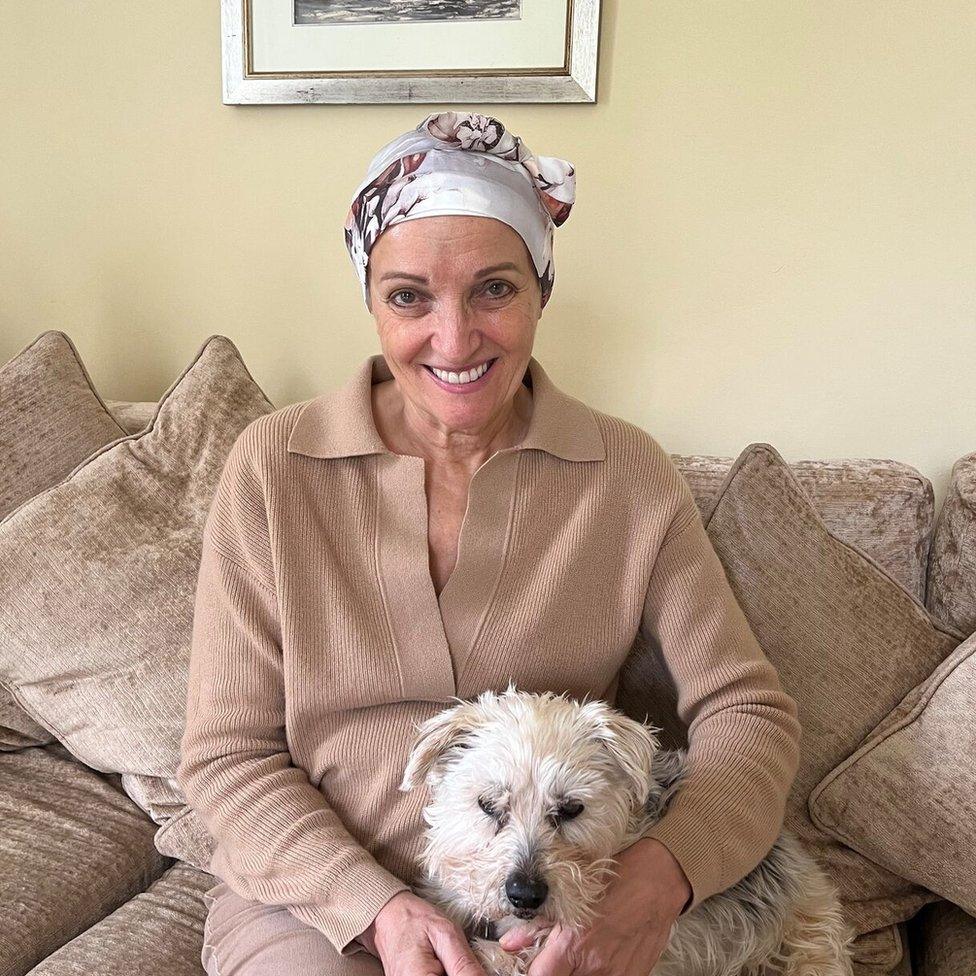
Jackie Higham wants more people to register with stem cell donor charities after she struggled to find a match due to her mixed ethnicity
Mrs Higham has a brother, but he was not a suitable candidate for a blood cell transplant.
Finding a match from other Lebanese relatives have also proved unsuccessful.
The mother-of-two, who has been a trustee of a number of charities, has lived in the UK since she was five years old.
Diagnosed with her cancer in October 2021, she will find out on 6 May if either of two potential donors might be a suitable match.
Her cancer means her body cannot make the healthy white blood cells she needs to fight off infection or carry oxygen, or platelets which help stop bleeding.
She endured weeks of chemotherapy and three blood transfusions to put the cancer into remission, which resulted in a severely weakened immune system and required continued self-isolation at home.
Mrs Higham, who was also found to have five chromosome dysfunctions, was told that without a stem cell transplant her cancer would return and likely prove fatal.
"I have always led an active and busy life and I just thought that I was a bit run down, but after my diagnosis my life changed overnight," she said.
"Whatever happens to me, I am determined to leave a legacy in which people like me, from ethnically diverse heritage, have a better chance of finding a donor.
"Whether you have similar parentage to me or not, do think about becoming a donor. You could save a life. My life."
Henny Braund, chief executive of Anthony Nolan, said: "We are committed to supporting Jackie as she waits for news of the donor who could save her life.
"It's not fair that Jackie is unable to start the treatment she urgently needs because of her mixed heritage."
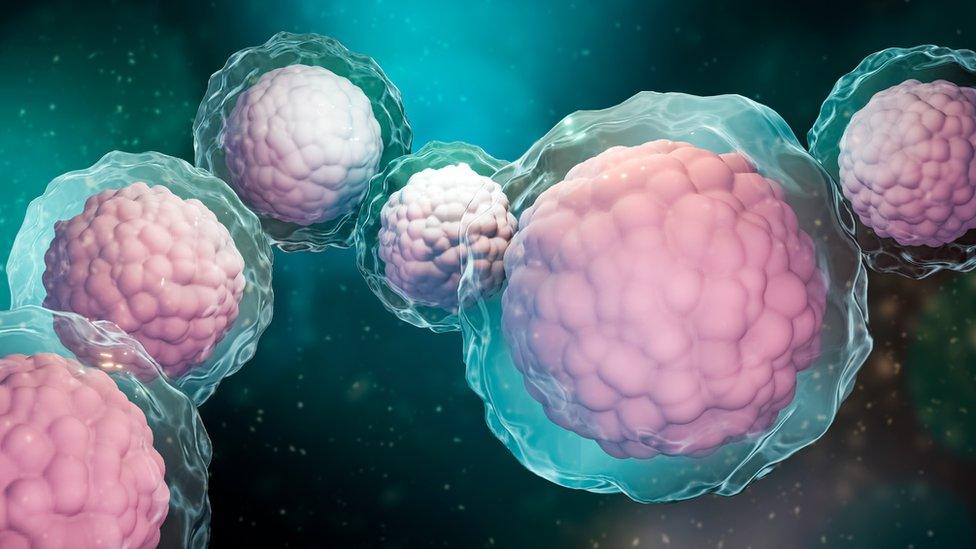
Anthony Nolan, the charity, said it needed more people aged 16-30, in good health and with diverse parentage to register with them and other stem cells registers
Mrs Higham said she was a rare case, in that chemotherapy had left her with zero leukaemia in her blood.
That meant her chances of a successful stem cell transplant had doubled to 50%, when taking into account her age.
It also meant surviving for at least another five years.
"I'm really happy with that, I'm really happy to go ahead with that. The chance of survival. Five years- I don't care, I'm just doing it." she said.
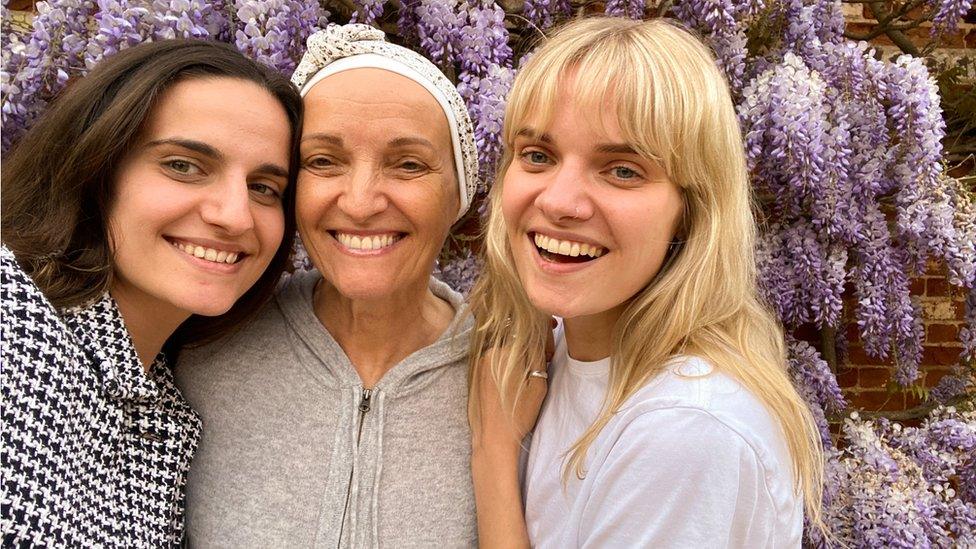
Jackie Higham with her daughters Issy (left) and Ella who have been running a social media campaign to get more people to register as donors
The charity said it needed more people aged 16-30, in good health and with diverse parentage to register with them and other stem cells registers.
In particular, more young men were needed to sign up, as this group provided more than half of all stem cell donations, but accounted for only 18% of its register.
Anthony Nolan said more than 2,000 people in the UK were in need of a bone marrow or stem cell transplant every year.
Some 75% of UK patients will not find a matching donor in their families and would require an unrelated donor, AN said.
The process of becoming a donor involves a simple cheek swab with the results kept on a register.
For 90% of donations, stem cells are collected through the donor's bloodstream, while 10% are taken from a donor's bone marrow and involves a surgical procedure.

Find BBC News: East of England on Facebook, external, Instagram, external and Twitter, external. If you have a story suggestion email eastofenglandnews@bbc.co.uk
- Published30 April 2022
